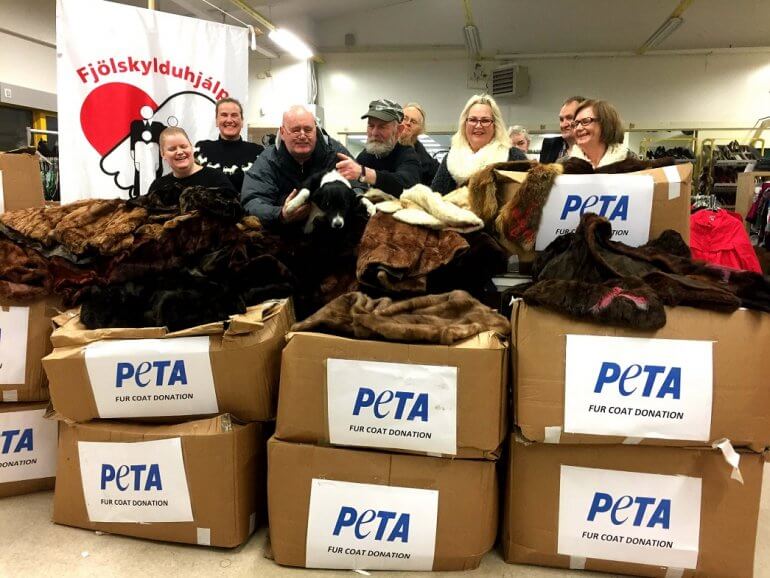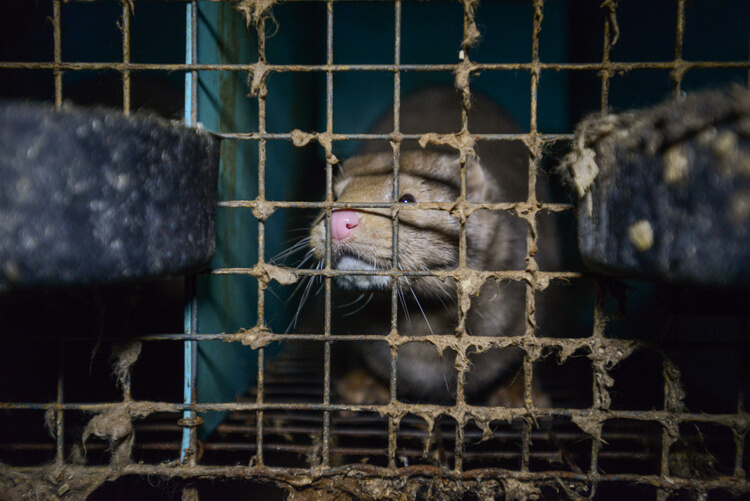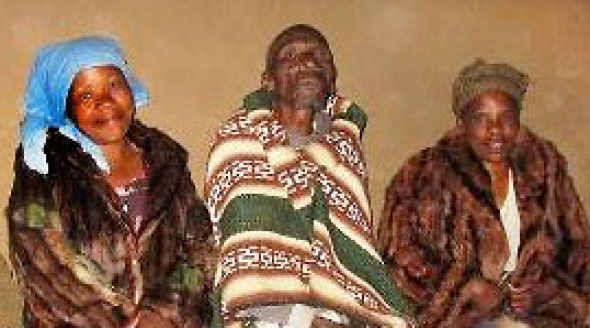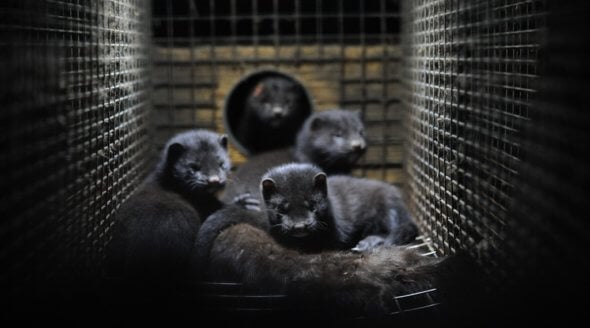Unwanted Furs Sent to People in Need This Winter
After learning of the cruelty behind the fur coat in their closet, many Brits have had a change of heart and decided to donate their unwanted furs to PETA so they can be put to better use than frivolous fashion.

The unwanted furs have all been donated to ChildAid. They will be cut up and made into blankets before being sent on to Moldova and Ukraine, where they will help keep vulnerable children warm this winter.
We can’t bring back the minks, rabbits, and other animals who were cruelly killed for fashion, but we can repurpose their fur and help people in need.
Fur Is Not Fashion
The fur industry is cruel, barbaric, and unnecessary. Millions of animals suffer and are killed every year for nothing more than bobble hats, keyrings, and fur trim. The vast majority of Brits (95%) refuse to wear fur, more and more designers are no longer working with it, and even Her Majesty the Queen has ditched it from her wardrobe.

There’s no kind way to produce fur items. As numerous PETA exposés of fur farms have revealed, minks, foxes, raccoons, and many other animals who are farmed for their fur spend their entire lives being driven insane by confinement to cramped, filthy wire cages. Neglected and often left suffering from untreated injuries and infections, they’re finally beaten to death, electrocuted, gassed, or skinned alive.
The Last Thing We Need Is Another Pandemic
Fur farms are putting public health at risk, too. When it comes to the risk of disease, they’re no different to the live-animal market in which the novel coronavirus is believed to have originated.
When stressed animals are confined next to each other in filthy conditions, it’s no surprise that diseases spread easily. Animals with infections, sores, and festering, open wounds caused by the wire flooring they stand on are a common sight. Fur farmers and handlers are among those who most commonly suffer from the zoonotic bacterial disease tularaemia.
What’s more, because minks are particularly susceptible to respiratory illnesses, mink farms around the world have proved to be dangerous breeding grounds for disease and have been identified as COVID-19 hotspots, giving rise to a mutated version of the virus.
What You Can Do
The best thing you can do for animals exploited on fur farms is to leave fur out of your wardrobe. However, if you happen to have some in there, we’ll take it off your hands, and our Fur Amnesty Programme will make sure it’s put to better use.
Even though fur farming has been banned in the UK for 20 years, fur is still imported for sale in stores nationwide, effectively condoning animal suffering. Now is the time for action. As the UK has left the EU, a ban on fur imports is no longer prohibited by EU trade regulations, and implementing one is essential to ending cruelty to animals.
The UK has a legacy of protecting animals – including by introducing the first animal welfare legislation in the world – and now has an opportunity to be the first country to ban all sales and imports of fur, setting an example for the rest of the world to follow. Urge your MP to support a UK ban on fur imports and sales:





